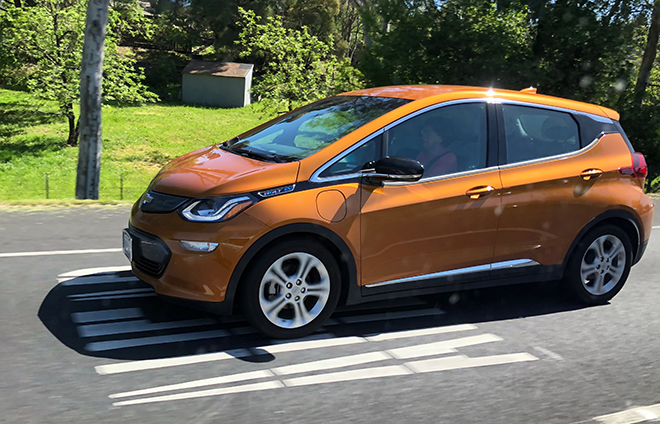As the legacy automakers finally begin to get serious about electrification, it’s becoming increasingly clear that the accelerating transition will result in a major restructuring of the industry, which seems likely to include substantial job losses. As a recent Bloomberg article reports, fear of the electric future is an underlying reason for the United Auto Workers strike against GM – the first in over a decade.
“There’s a potential for our jobs to be gone – they don’t need us anymore,” Tim Walbolt, President of a UAW local representing Fiat Chrysler workers in Ohio, told Bloomberg. “It scares us.”
Ford has estimated that producing EVs will require 30% fewer hours of labor and 50% less factory floor space compared to building legacy vehicles. Several consultants cited by Bloomberg also predicted far less demand for labor in an electric auto industry. A study of EV production in Europe by AlixPartners found that assembling an electric motor and battery took 40% fewer hours compared to an ICE and transmission. IHS Markit predicts that automakers will stop introducing new gas-powered engine families by 2022. Deloitte says the market for legacy powertrain components such as mufflers, fuel tanks and transmissions could shrink by as much as 20% by 2025.
“The value chain is shifting and companies and their unions are going to have to figure out how to change themselves or risk becoming part of a shrinking bubble,” Deloitte’s Neal Ganguli told Bloomberg.
These days, engines and transmissions are about the only major components that all automakers build in-house, representing almost half of automaker manufacturing capacity. Batteries – the most expensive components of EVs – currently come almost exclusively from Asia, and other key parts are also products of the global supply chain. To give one example, 64% of GM’s Bolt is made in Korea, including the battery, which comes from LG Chem. The electronics giant makes cells in South Korea and assembles packs for GM and Fiat Chrysler at a non-union plant in Michigan, where technicians start at $16 an hour (senior UAW employees earn $28 to $30 per hour).
The Wall Street Journal reports that GM has redirected capital to invest in electrification and autonomy by making deep cuts at legacy locations. The company’s decision to close four US factories was one of the main reasons for the recent strike.
European automakers are ahead of the US in terms of trying to keep EV production local. Daimler is producing batteries at two factories in Germany. In February, Germany and France announced a joint effort to turbocharge battery cell production in Europe with an investment of 1.75 billion euros. Volkswagen recently opened a new facility in Germany that will produce battery cells at a former engine plant. VW has also committed to a deal with its unions to produce three electrified models at factories in Germany that were slated to be shut down. Porsche reached a deal with labor leaders under which workers will take a cut in their annual bonuses in return for a commitment to build the new Taycan EV in Stuttgart.
The UAW hopes US automakers can be convinced to take similar measures. “We want new investment in technology and products to help keep us on the cutting edge, and training to make sure our workers are competitive,” UAW President Gary Jones said at a recent union convention.
GM has offered to hire union members for a new battery plant in Ohio, near the assembly plant in Lordstown that’s scheduled for closure – however, both wages and the head count will be reduced. There’s also a plan in the works to produce electric trucks at the Lordstown plant, in collaboration with startup Workhorse. GM negotiators have reportedly also floated the idea of building an electric pickup truck at an assembly plant in Detroit that’s currently on the chopping block.
“We’d love to have an electric pickup here,” GM electrician Scott Harwick told the WSJ. “I don’t care what it is – we just want something that sells.”
For those of us in the bubble of the EV/renewable-energy-oriented media, reading about the new EVs, new technological breakthroughs and new infrastructure projects being announced every day, it may be tempting to conclude that the clean energy transition is inevitable and irreversible. However, the wider world is just beginning to become aware of the major social upheavals that will be triggered by the issue of climate change and the technological changes that will be required to address it, and the backlash is coming.
No, there’s no conspiracy against EVs – but there is a wide range of powerful groups that are opposed to electromobility for their own individual reasons. These spoilers include, obviously, the oil industry and many (but by no means all) auto industry execs, but also a variety of libertarians, Luddites and opportunists in both politics and the media. It will be a tragedy if organized labor joins this list. It’s up to decision-makers in the auto industry and local and state governments to prevent that from happening.
Source: Bloomberg, Wall Street Journal

















































































